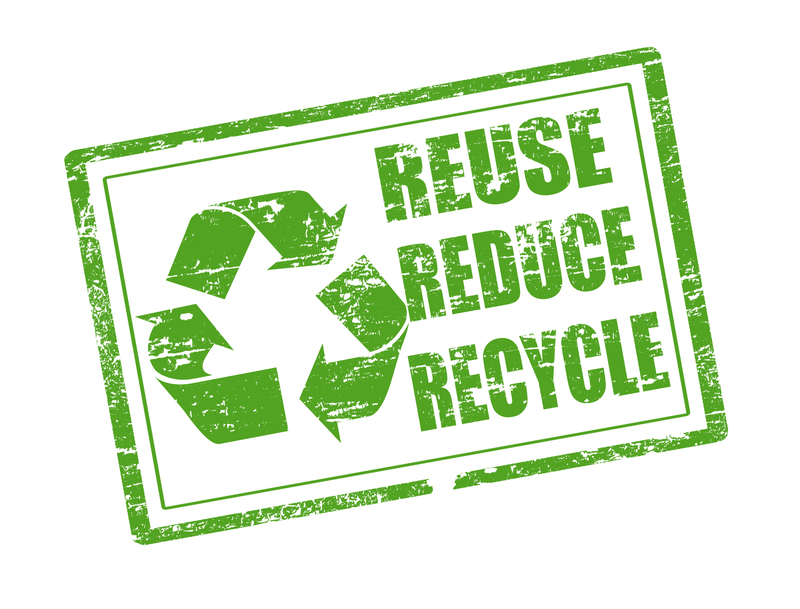Unveiling the Importance of Waste Clearance Services
Waste management is a crucial aspect of modern living, shaping the health, environment, and aesthetic of our communities. As urbanization accelerates and consumerism expands, the volume of waste generated on a daily basis has surged. This scenario makes waste clearance services indispensable. In this comprehensive guide, we delve into the significance of waste disposal services, their myriad benefits, and practical insights for leveraging them effectively.

What Are Waste Clearance Services?
Waste clearance services refer to the systematic collection, transportation, and disposal or recycling of unwanted materials, debris, and rubbish generated from households, commercial establishments, construction sites, and public spaces. These services have evolved into sophisticated operations, employing state-of-the-art equipment and adhering to local and international environmental regulations.
Key Types of Waste Clearance:
- Residential Waste Clearance: Handling domestic waste like food scraps, old furniture, electronics, and miscellaneous household junk.
- Commercial Waste Removal: Serving offices, retail spaces, restaurants, and public buildings with regular garbage collection and recycling.
- Construction and Demolition Clearance: Specialized removal of heavy debris, construction waste, and hazardous materials.
- Garden and Green Waste Disposal: Managing biodegradable waste from gardens and landscaping projects.
Why Are Waste Clearance Services Important?
1. Environmental Protection
Perhaps the greatest benefit of reliable waste clearance services is their role in protecting the environment. Improper waste disposal can result in pollution of the land, air, and water systems. By ensuring that waste is sorted, processed, and recycled appropriately, clearance services significantly reduce the negative impact on ecosystems.
- Prevents soil and groundwater contamination from hazardous substances.
- Reduces the emission of greenhouse gases by minimizing landfill use.
- Supports local and global environmental conservation goals.
2. Public Health and Safety
Waste can be a breeding ground for disease-causing organisms, pests, and bacteria. Efficient rubbish removal ensures that communities remain healthy and safe. Proper waste management reduces the risk of disease outbreaks, allergic reactions, and injuries caused by sharp or hazardous debris.
- Curbs the spread of infectious diseases.
- Prevents rodent and insect infestations.
- Reduces the likelihood of accidental injuries and fires.
3. Aesthetic and Social Benefits
Clean, clutter-free surroundings enhance the appearance of neighborhoods, public parks, and workplaces. Junk clearance services contribute to community pride and make spaces more inviting for residents, employees, and visitors.
- Boosts property values and curb appeal.
- Encourages social responsibility and civic participation.
- Enhances mental well-being associated with tidy environments.
4. Recycling and Sustainable Resource Use
Sustainability is at the heart of modern waste clearance solutions. Professional services ensure that recyclable materials such as paper, plastic, metal, and glass are separated and processed correctly. This not only conserves resources but also reduces the demand for virgin raw materials, lessening the overall ecological footprint.
- Facilitates the transition towards a circular economy.
- Promotes the reuse of materials, decreasing overall waste generation.
- Lowers energy consumption by diverting recyclables from incineration or landfill.
5. Legal Compliance
Strict regulations govern waste disposal in most regions. Utilizing certified waste removal companies ensures adherence to local laws and avoids penalties. These regulations often mandate proper segregation, recycling, and treatment of certain types of waste, particularly hazardous substances.
- Protects individuals and businesses from legal liabilities.
- Aligns with corporate social responsibility and sustainability guidelines.
- Ensures safe and ethical disposal in line with legislation.
How Waste Clearance Services Work
Step-by-Step Process:
- Assessment: Professionals inspect the type and quantity of waste present at the location.
- Segregation: Recyclables, hazardous waste, and general rubbish are sorted for appropriate handling.
- Collection: Trained teams load the waste onto specialized vehicles equipped for safe transport.
- Transportation: Waste is moved from the collection site to recycling centers or certified disposal facilities.
- Processing: Materials are recycled, composted, treated, or disposed of as per regulatory and environmental standards.
Modern Innovations in Waste Clearance
- Smart Waste Monitoring: Using IoT technology to optimize collection schedules and routes.
- Eco-Friendly Vehicles: Adoption of electric or low-emission trucks for waste transport.
- Data-Driven Recycling: Analytics to improve the efficiency and output of recycling operations.
- Zero-Waste Initiatives: Programs designed to minimize landfill contributions as much as possible.
Who Needs Waste Clearance Services?
1. Homeowners and Tenants
Whether moving house, completing renovations, or performing a thorough spring clean, residential junk removal services are indispensable. From old mattresses to garden refuse, professional clearance teams save time, provide convenience, and ensure responsible disposal.
2. Businesses and Offices
Maintaining a clean and organized commercial space is vital for productivity, regulatory compliance, and a positive client impression. Office waste clearance services are tailored for regular collection or one-off clear-outs, safely handling everything from paper to obsolete electronics.
3. Builders and Contractors
Construction and demolition generate large volumes of debris, often including hazardous materials like asbestos or treated wood. Specialized construction waste clearance contractors manage sorting, hauling, and safe disposal for builders, keeping worksites compliant and safe.
4. Property Managers and Landlords
At the end of leases or before handing over properties, a thorough clearance of items left behind by former occupants is a must. Waste removal experts quickly restore properties to rentable condition.
5. Municipalities and Councils
Public spaces, parks, and streets require regular waste management to ensure cleanliness and public health. Municipal contracts with professional waste clearance services are key to keeping cities livable.
Advantages of Hiring Professional Waste Clearance Services
- Time and Effort Saving: No need to sort, lift, or haul heavy items yourself. Professionals handle the process end-to-end.
- Health and Safety: Reduces the risk of injury and exposure to hazardous substances.
- Eco-Friendly Practice: Ensures maximum material diversion from landfill through recycling.
- Compliance: Guarantees legal regulation adherence for both businesses and individuals.
- Transparent Pricing: Most reputable companies offer clear, upfront quotes without hidden charges.
- Versatility: Services are available for a wide range of needs, from single-item pick-ups to large-scale clear-outs.
Choosing the Right Waste Clearance Provider
Tips for Selecting a Reliable Service:
- Certification and Licensing: Ensure the company is fully registered and operates under local waste management laws.
- Recycling Commitment: Opt for providers with transparent recycling and sustainability policies.
- Insurance: A reputable provider will have public liability insurance for added peace of mind.
- Customer Reviews: Check online reviews for reliability, punctuality, and professionalism.
- Flexibility: Choose a service that offers convenient booking options and adapts to your schedule.
Waste Clearance and the Future: Trends and Innovations
As the world moves towards greener and more sustainable lifestyles, the waste clearance industry is rapidly evolving. Below are some trends shaping the future of waste removal:
- Increased Automation: Robotics and automation are set to streamline sorting and recycling processes.
- Zero Waste Initiatives: Growing movements towards completely eliminating landfill waste at both community and corporate levels.
- Decentralized Solutions: Localized recycling and composting facilities to cut down transportation emissions.
- Extended Producer Responsibility (EPR): Policies that make manufacturers responsible for post-consumer waste.
- Digital Platforms: Online booking, tracking, and payment apps for user-friendly, on-demand rubbish clearance.

Practical Tips to Reduce and Manage Waste at Home
Apart from hiring professional waste clearance services, adopting smart habits can substantially cut down the total waste generated:
- Reduce: Buy only what you need and opt for products with minimal packaging.
- Reuse: Repurpose containers, bags, and other items whenever possible.
- Recycle: Properly sort recyclable materials as per your local council guidelines.
- Compost: Transform food scraps and garden waste into nutrient-rich compost for your plants.
- Declutter Regularly: Schedule routine organising and clearance sessions to prevent waste build-up.
Conclusion: The Unmatched Value of Waste Clearance Solutions
In summary, waste clearance services are much more than a convenience--they are an essential component of healthy, safe, and sustainable communities. By facilitating proper disposal, enhancing recycling rates, and ensuring environments remain uncluttered and hygienic, these services unlock social, economic, and ecological value. As the global population continues to grow, the importance of rubbish removal and waste management will only increase.
For individuals, businesses, and municipalities alike, investing in professional waste clearance is a proactive step toward a cleaner, greener, and more prosperous future. Make the responsible choice: prioritize effective waste management and contribute to making the world a better place for generations to come.